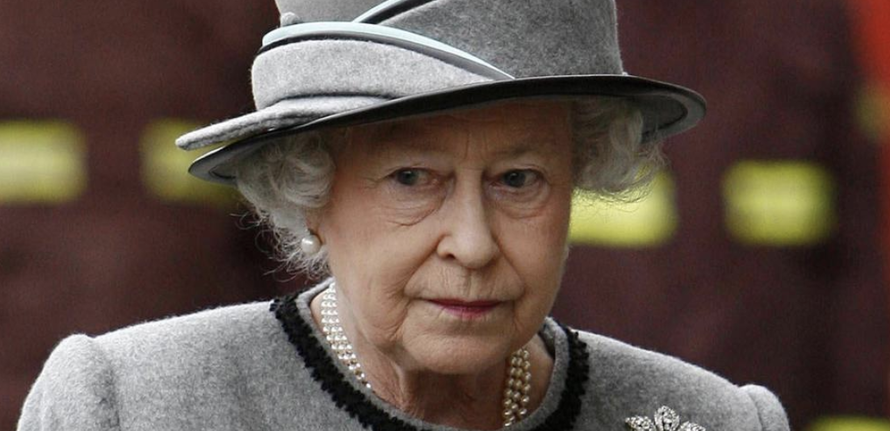Theresa May’s “victory” last week when MPs backed the Brady amendment, giving May a Parliamentary mandate to renegotiate her withdrawal agreement with the EU, has been short-lived. As Irish and EU officials dig in their heels and continue to insist that they won’t allow modifications to the text of the deal, Wall Street banks have been raising the probability of a no-deal Brexit while some analysts have warned that May has inadvertently boxed herself in: By taking a delay of Article 50, and therefore removing the possibility of a “People’s Vote” (second referendum), the prime minister might have set herself up for failure, as Brexiteer MPs appear ready to pull the ripcord on a no-deal Brexit.
As we’ve noted time and time again, thanks to the efforts of No. 10 Downing street and a network of economists and business groups, the British people have been conditioned to believe that a no-deal Brexit will result in Britain transforming into a “Mad Max”-style hellscape complete with shortages of basic goods and civil unrest that could necessitate a declaration of Martial Law.
Warehouses will quickly run out of fresh vegetables, medicine and other basic goods. The UK’s highways will become clogged with lorries waiting for their turn to clear new customs checks. And the financial services industry will struggle to clear trades and perform other basic functions. One recent report even warned that a no-deal Brexit could lead to “thousands of deaths” from mass hunger.
As if all of this wasn’t bad enough, a series of reports published this weekend added to Briton’s anxieties.
The Independent reported the severing of ties between EU and UK security agencies as a result of a ‘no deal’ Brexit.
Rob Price, head of the Acro criminal records office, said access to EU conviction records was “critical” to deciding whether to release or detain a foreign suspect. Without them, the UK could be forced to allow dangerous criminals to roam the streets.
“Now is the time for people to really understand this is not just something you can pass off and say ‘it will be alright’,” Mr Price said. “Politicians use the term ‘sub-optimal’ and what does that mean? It means high risk and less secure.”
And while UK law enforcement agencies are “trying their best” to build a backup system, without access, “stuff will get missed.” The UK makes 600 requests to foreign law enforcement agencies every day, and of these, roughly two-thirds are for Europeans. Because of the cooperation agreement, responses from Europe can take one to two days. But the lag time for agencies outside of Europe can be longer than three months.
As it stands, the agreement allows the UK access to ECRIS, the European Arrest Warrant, Schengen Information System II and other systems. This access will be maintained until the end of the transition period (the end of 2020), so that would give the UK some lead time to negotiate replacement agreements.
“We’re going to have to explain that to the public at some point, we may even have to explain that to victims and witnesses.”
“Somebody may be arrested for shoplifting here but back home they could have a serious conviction. There could be a reason why they are here.”
And while Acro said he’s working to set up bilateral agreements, completing security cooperation agreements with individual members of the EU27 could take a long time.
“In a short timescale we’re not going to be able to get 27 agreements,” Mr Price said. “Bilaterals are a lot slower, a lot clunkier. ECRIS is a really important part of our business – turning that off is going to have a significant impact on our ability to make this country safer and to make European countries safer as well.”
And as if rampant crime wasn’t enough of a concern, a more immediate concern could be a “garbage crisis” in the heavily populated streets of the Southeastern UK, the area in and around London. Because if the UK leaves the EU without a deal on March 29, export licenses for livestock and the millions of tonnes of waste that the UK exports to the EU could become invalid “overnight,” according to the Guardian.
The result could be nothing short of a public health emergency. Not only would the UK lose the ability to export its trash, increasing the likelihood of polllution seeping into its water supplies, but a backlog of livestock could cause manure overflows.
If the UK leaves the EU without a deal on 29 March, export licences for millions of tonnes of waste will become invalid overnight. Environment Agency (EA) officials said leaking stockpiles could cause pollution.
The EA is also concerned that if farmers cannot export beef and lamb, a backlog of livestock on farms could cause liquid manure stores to overflow. A senior MP said the problems could cause a public health and environmental pollution emergency. An EA source said: “It could all get very ugly, very quickly.”
The emails leaked to the Guardian were sent to EA staff, asking for 42 volunteers to staff crisis management centres that would deal with incidents. On Tuesday the chief executive of the civil service revealed plans to move up to 5,000 staff into an emergency command and control centre in the event of no deal.
It would also open the door to criminal fraudsters seeking to exploit the situation.
“No deal would be a green light to criminal fraudsters and create a public health and environmental pollution emergency. EA officials should not carry the can for the failings of government to get a deal through and this shows how hollow the prime minister’s promises were about protecting the environment if we leave the EU.”
But in what was perhaps the most outlandish entry in the “Project Fear” project, two UK newspapers, the Daily Mail and the Times of London, led their Sunday editions with stories about plans to move the Queen and the royal family out of London to a “secure location” if a no-deal Brexit results in public unrest – a plan we’re calling “Operation Gan-Gan Drop”.
If rioters take to the streets of London following a hard Brexit, a Cold War plan to evacuate the royals to an undisclosed location in the countryside would be immediately implemented.
The Queen and other senior royals will be evacuated from London in the event of riots triggered by a no-deal Brexit, under secret plans being drawn up by Whitehall.
Emergency proposals to rescue the royal family during the Cold War have been “repurposed” in recent weeks, as the risk continues to rise of the UK crashing out of the EU without a deal before next month’s deadline.
Still, during times of abject hysteria, some MPs – notably arch-Brexiteer Jacob Rees-Mogg – have spoken up to remind Britos that while there would be a degree of economic fallout from a hard Brexit, it would be “survivable,” according to Sky News.
“It seems to me we have got to guard against two things. One is an irrational pessimism that says that everything will be a catastrophe and irrational optimism which says everything will be okay.
But the way things are going, if May wants to successfully whip up the votes for the version of her Brexit deal that has already been voted down by a historic margin, she is going to need to try a little harder.
via ZeroHedge News http://bit.ly/2SnmU7K Tyler Durden

